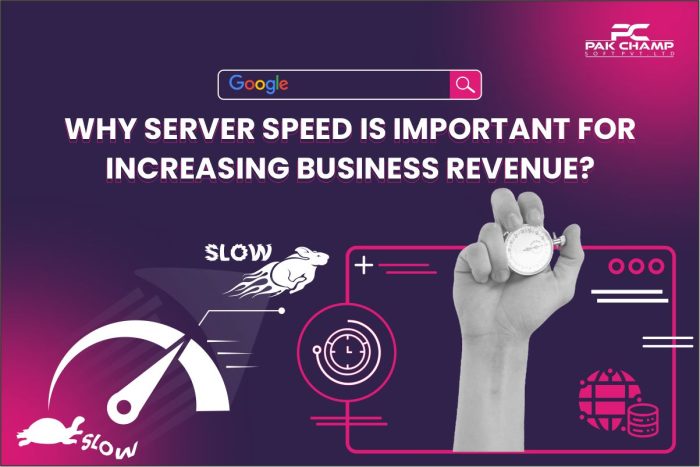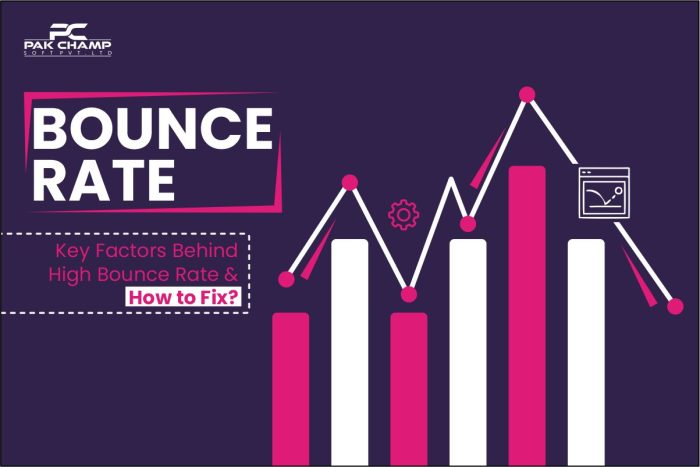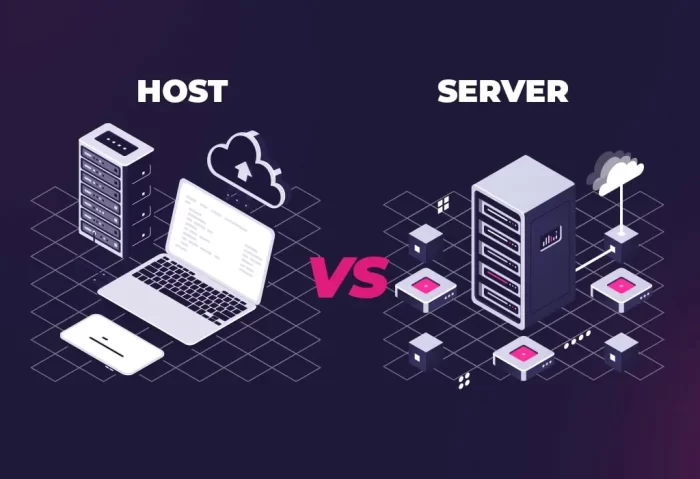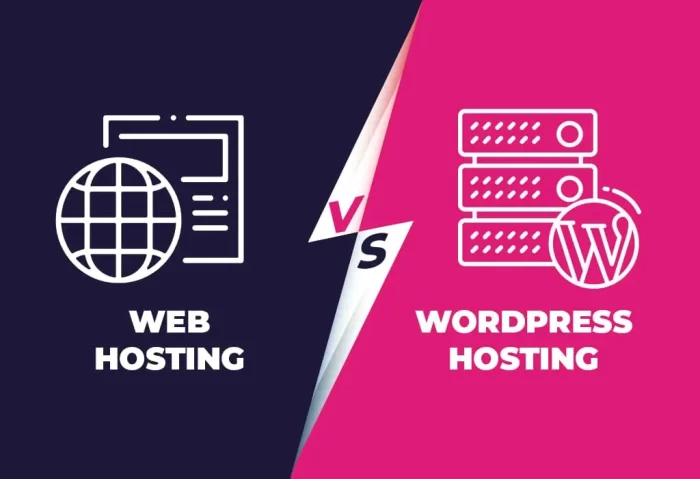When you plan to buy hosting services, first, you must know how much hosting space you’ll keep in your web hosting plan. You may hear the term bandwidth when purchasing your web hosting services.
Do you know what it is and how to calculate it?
If not!
Don’t worry!
Here in this blog post, we’ll discuss it in detail. So let’s move with us:
You may encounter different hosting plans when you start your mark search to buy web hosting services to host your website or blog. All web hosting plans are different based on their performance quality, bandwidth, and hosting cost.
Bandwidth is one of the significant hosting features that you should consider when purchasing a hosting space. Before debating this feature, you need to know what bandwidth is? Most people interlink bandwidth with website speed, which needs to be corrected. Let me explain further.
[lwptoc numeration= “none”]
Table of Contents
ToggleWhat Is Web Hosting Bandwidth?
Bandwidth refers to the amount of data transmitted in a given period. Website data is typically measured in bits/megabits per second. When you upload images, pages, and graphics files to your hosting provider, it stores them on its servers so your users can access them when they want.
When your website users request these files, bandwidth measures how fast specific files can be transferred over the internet by your site visitor. Bandwidth is measured in bits/megabits per second. So, the more Mbps your web hosting provider offers, the more files you can transfer over the internet.
Why Bandwidth is Essential?
Bandwidth is essential to hosting a website smoothly. However, the bandwidth you need depends entirely on your website niche, traffic, and content.
You only need a limited bandwidth if you’re running a low-traffic website with limited data files, content, or images. However, if your website is filled with multimedia and graphics, you’ll need more bandwidth to avoid downtime.
Bandwidth determines how fast your web page loads on your browser. This is one of the main reasons to consider when choosing a hosting plan for your website. A website with heavy images and long videos typically needs a higher bandwidth of 20 Mbps. In contrast, websites only based on blogs or content will require less bandwidth.
For smooth online performance you need a rocket-fast server speed to quickly upload your website data or files. Higher bandwidth will effectively improve the quality and user experience of your website.
How Do you Check the Bandwidth Usage of a Website?
Calculating your website’s bandwidth needs is not a daunting task for this you don’t require technical knowledge. You simply need to determine your website’s expected monthly visitors and the average size of its pages. Since your website visitor might also be interested in visiting other website pages, you must consider this factor when calculating your website bandwidth needs.
To calculate a rough estimate of bandwidth needs, the following information will need to be collected from your website’s management portal:
- Average page size
- Expected monthly visitors
- Average daily visitors
- Page views
- Redundancy
For your comprehensive understanding of bandwidth’s calculation, let me clear it up;
Let’s assume!
Your website is expecting visitors 20,000 per month and an average website page size of 40KB. Visitors are expected to visit an average of 3 pages on your website. Before selecting a web hosting plan, check or calculate how much bandwidth you need to run your website.
If you need to know your website’s average page size, you can also utilize the Pingdom tool to see its load time and find its average page size.
To be on the safest side, you have to consider extra space to manage your website. At least 50% of this space should be allocated to your website’s traffic. Therefore, calculate every possible side when calculating your website’s expected bandwidth requirements.
What is Unlimited Bandwidth?

You may have heard that local and international web hosting companies offer unlimited bandwidth. However, it’s important to understand that these hosting companies don’t actually provide unlimited bandwidth, despite their claims.
Because there is no free lunch in this world!
How will Web Hosting Companies offer you Unlimited Bandwidth?
It’s just a marketing tactic to get potential customers’ attention. In reality, there is no such thing as unlimited bandwidth in the tag name.
Web hosting companies offer unlimited bandwidth plans to attract more users. Still, most companies provide an average bandwidth as their unlimited bandwidth plan.
With unlimited bandwidth, hosting provider psychology satisfies their customers. By comparing the amount of your required bandwidth, you can reach the amount offered in the unlimited bandwidth plan.
How Much Bandwidth Do I Need?
The bandwidth you require to host your website depends upon your website niche, data or file size/collections/images, and the number of visitors. If you know these details, you’ll be able to select the right web hosting plan with the proper bandwidth for your website, empowering you to make an informed decision.
If your site is new or has a limited number of content and visitors, you don’t need a lot of bandwidth. In this context, the Shared hosting plan might be an excellent option. On the contrary, if your site already has high traffic and carries heavy graphics, images, video, audio, downloadable content, and visitors, then you need more bandwidth.
The easiest way to determine your website’s bandwidth requirement is to log into your host account and view your website traffic reports in your cPanel. So, even if you start your hosting journey with a shared hosting plan, it’ll shut down your website instead of losing your customers. Upgrade your hosting plan to accommodate your site visitors and ensure the best user experience.
What Happens When You Have Low Bandwidth?
Low bandwidth means slow network performance, and it generally refers to bandwidth issues by attempts to process large amounts of data over an extended period. There are a few common activities that can cause low bandwidth problems, such as:
- Streaming videos
- Large file transfers between computers
- A constant stream of data
- Downloading files from the internet
All of the above can cause low bandwidth issues in a network. Low bandwidth issues negatively impact your regular and potential customers, and you may lose your potential customers forever.
What Happens if I Exceed Bandwidth?
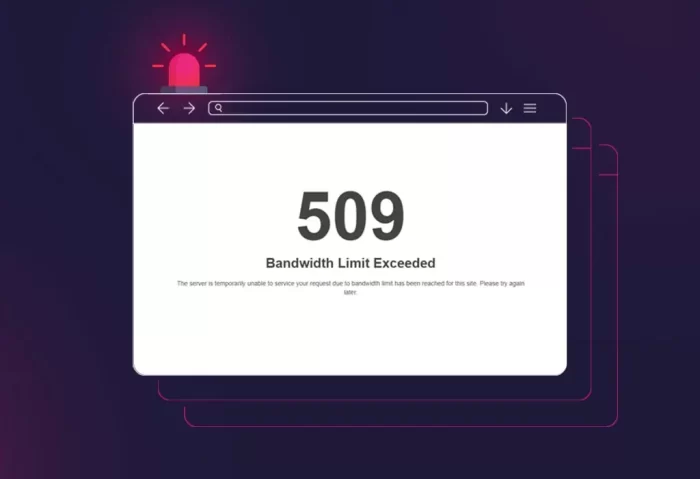
The term’ bandwidth limit exceeded’ indicates that the amount of bandwidth included in your hosting plan has been reached. Bandwidth is consumed when data is retrieved from the server and delivered to the end user, and when the end user uploads data to the web server. If the bandwidth used exceeds the limit offered in the hosting plan, the browser will return a ‘bandwidth limit exceeded error.’
If the bandwidth used exceeds the limit offered in the hosting plan, the browser will return a ‘bandwidth limit exceeded error.‘
To avoid the tension of bandwidth exceeding the limit, it offers an unlimited web hosting plan for its hosting customers to enjoy tension-free hosting at a competitive price.
How I Reduce My Website Bandwidth?
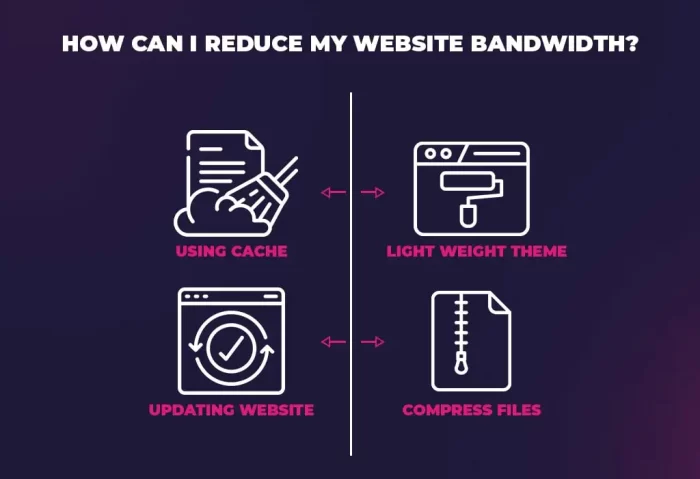
If you can’t upgrade your hosting plan, consider limiting the bandwidth available to your site. For this, you may need to compress your website images and the size of massive downloads and videos.
In this strategy, consider utilizing a cache plugin to enable compression from JavaScript, CSS, and HTML. Your static material may also be stored on a Content Delivery Network near your audience. Again, this will reduce your website server load time.
If your shared hosting plan’s bandwidth is insufficient for your website, you should consider switching to VPS hosting to smoothly navigate your digital path.
How Do I Increase Bandwidth?

You don’t need to worry about increasing your web hosting bandwidth if you are a hosting customer. We offer a wide range of hosting plans with multiple bandwidth options and features to facilitate our hosting customers. From web hosting, upgrading or downgrading your account to increasing or decreasing your bandwidth limit is easy. To get details, contact our sales.
Some web hosting companies offer additional bandwidth in emergencies or change web hosting plans per their customer’s demands.
Optimizing Your Bandwidth Usage
Over use of bandwidth is one of the most common features of hosting plans. Therefore, before signing in, you must know your website’s requirements. When you notice your website is using more bandwidth than it needs to, there are a few things you can do to optimize your bandwidth, such as:
- Use an external host for images and graphics
- Keeping site images & videos on an external server
- Compress your images. videos
- Use a content delivery network
- Monitor your bandwidth usage as your website grows, and keep an eye on your bandwidth usage to ensure that new additions to the website aren’t eating more.
By optimizing your website’s bandwidth, you’ll reduce your hosting costs.
Conclusion
Hopefully, you have a good understanding of web hosting bandwidth and what bandwidth is in web hosting. Keeping an eye on your website bandwidth will help you get decent returns in the long run. Therefore, I encourage you to pay more attention to your website bandwidth requirements and select the best hosting plan to meet your hosting needs.




